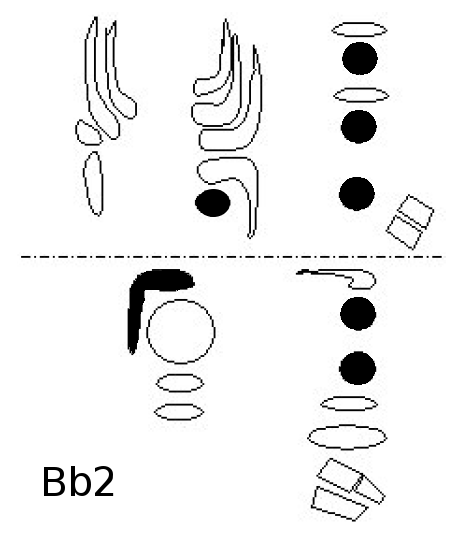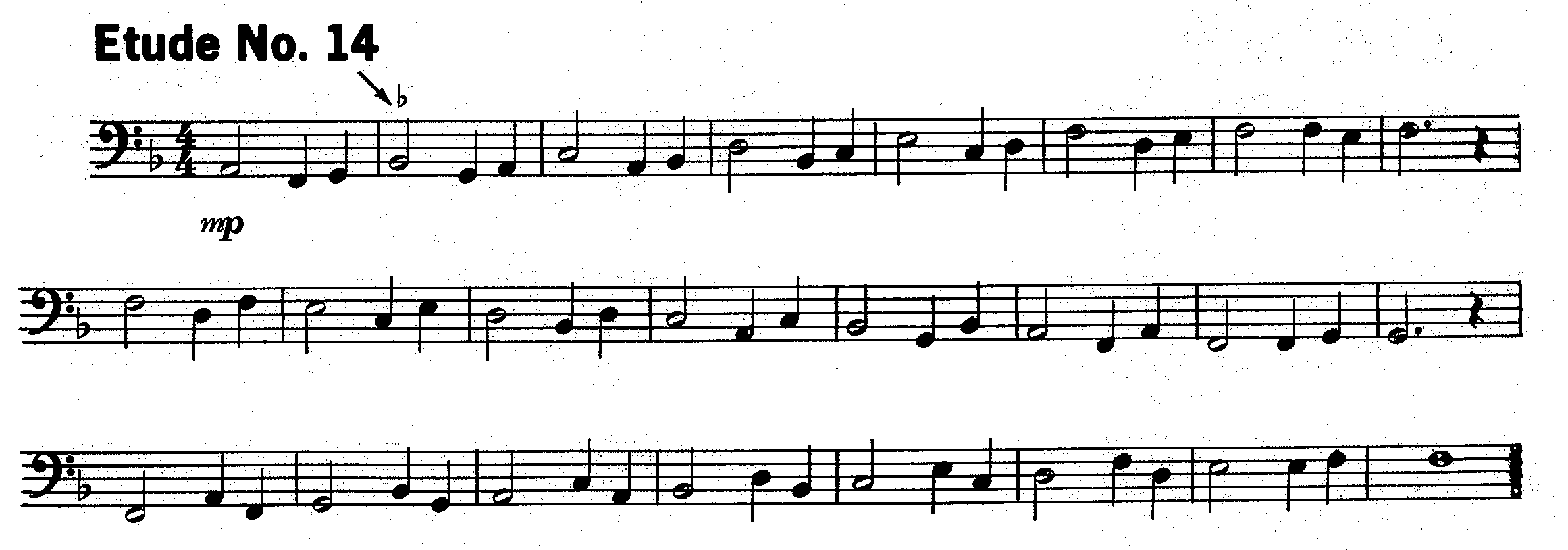

Sixth Bassoon Lesson, Part 2
Use of flick or speaker keys. Studies by A Tune a Day, Rubank, and Paine. By
Terry B. Ewell. BDP#194.
www.2reed.net/bdp.
<Intro
Music: “Home Sweet Home” from A Tune a Day,
lesson 29 number 6.>
Let’s start by looking at the new
fingerings in this lesson.
F2 (Low F), Bb2 (Bb below open
F), Bb3 (Bb above open F) and C4.


I highly recommend the materials
created by Professor Kristen Wolfe Jensen on the website “Music and the Bassoon”
http://www.musicandthebassoon.org.
She has supplied a website with studies, suggested fingerings, sound files, and
helpful videos. To support the materials in this lesson I suggest you look at
videos and materials in units 20 and 25 on flicking.
Now, let’s explore some more
studies on flicking and other materials that expand your range.
Now, let’s take a look at
Rubank lesson 6, number 5. I picked the third line because there are
several flicked notes in a row. When you have several flicked notes in a row,
you don’t have to flick them individually, particularly if it is very fast. You
can hold down the C speaker key.
Let me do this
first for you with each note flicked.
<Example Rubank
lesson 6, #5>

Here it is with
the C speaker key held down for flicked notes that are adjacent to each other.
<Example Rubank
lesson 6, #5>

This technique works very well, particularly for rapid notes.
Let’s go on to “A Tune a Day” lesson 15, number 7.
This etude I will also just depress the C key for the first three measures
instead of flicking each note separately.
<Example A Tune a Day lesson 15, #7>

Now, under the French Folk Song
and many of the other melodies contained in A Tune a Day you will see some
directions: “Think Count 1 2 3” or whatever numbers are given. Now when I play I
don’t think of numbers, rather, I hear pulses. I think this is a more successful
way to play. Sometimes it is confusing to try to get the numbers in sequence
while you are playing. The important thing, however, is that you are hearing the
beats.
This next study, by Paine Etude
number 14, introduces low F or F2. I will play the last line for you.
<Example Paine Etude 14>

Make sure that
you hold of the notes to full value, including the last whole note. That should
be held for four full counts. Thank you, bye.
<Closing
Music: “Home Sweet Home” from A Tune a Day,
lesson 29 number 6.>
Copyright (c) 2016 By Terry B. Ewell. All rights reserved.